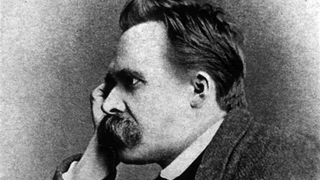New Atheism, Old Problems
- |

Author, political philosopher and self-proclaimed atheist John Gray has a few words for members of the new atheism – and they are not complimentary. He calls new atheists evangelical, but argues that the ideas they are attempting to spread are ill founded. As Gray puts it: ‘In fact there are no reliable connections – whether in logic or history – between atheism, science and liberal values. When organised as a movement and backed by the power of the state, atheist ideologies have been an integral part of despotic regimes that also claimed to be based in science, such as the former Soviet Union . . .. Yet the attempt continues in atheist movements today, which claim that liberal values can be scientifically validated and are therefore humanly universal.’ Far from believing, as new atheists do, that science provides a justification for liberal values, Professor Gray suggests that without some form of belief in God (or gods), universal morality crumbles.
Gray seems to align himself with an older brand of atheist, including big names like Schopenhauer and Freud. He notes: "Above all, these unevangelical atheists accepted that religion is definitively human. Though not all human beings may attach great importance to them, every society contains practices that are recognisably religious. Why should religion be universal in this way? For atheist missionaries this is a decidedly awkward question." Gray’s answer to his own question – "a need for illusion [may be] built into in the human mind’ – is no more satisfactory than his apparent support for an atheism that is unbothered ‘about ultimate questions."
For Gray, there can be no universal morality, only perhaps some agreed-upon principles that are to humanity’s mutual benefit. Gray is not the only atheist thinker to reject a liberal code of ethics. Frederick Nietzsche did likewise, though for different reasons. Gray simply finds liberalism philosophically unsupported by atheism. Nietzsche, on the other hand, disliked liberal values because they were linked to faith. He believed ‘that the chief sources of liberalism were in Jewish and Christian theism: that is why he was so bitterly hostile to these religions. He was an atheist in large part because he rejected liberal values.’
So, on the one hand you have atheism, untethered from any guiding ethical light and unable to explain humanity’s unflagging (and even, Gray notes, resurging) attraction to religion, and on the other you have the Christian tradition, not only answering our questions of purpose and meaning in life, but leading the way toward a more just society.
Andrea Williams observes, "Once again, in Christianity, we see that God has laid out a pattern for human flourishing. God has instilled in all human beings the innate sense that there is some code of ethics we ought to live by, and – to those who trust in the person of Jesus Christ – God grants great fulfillment in a life given to serving and worshiping Him."
Related Coverage:
What scares the new atheists
